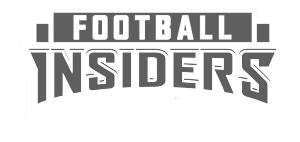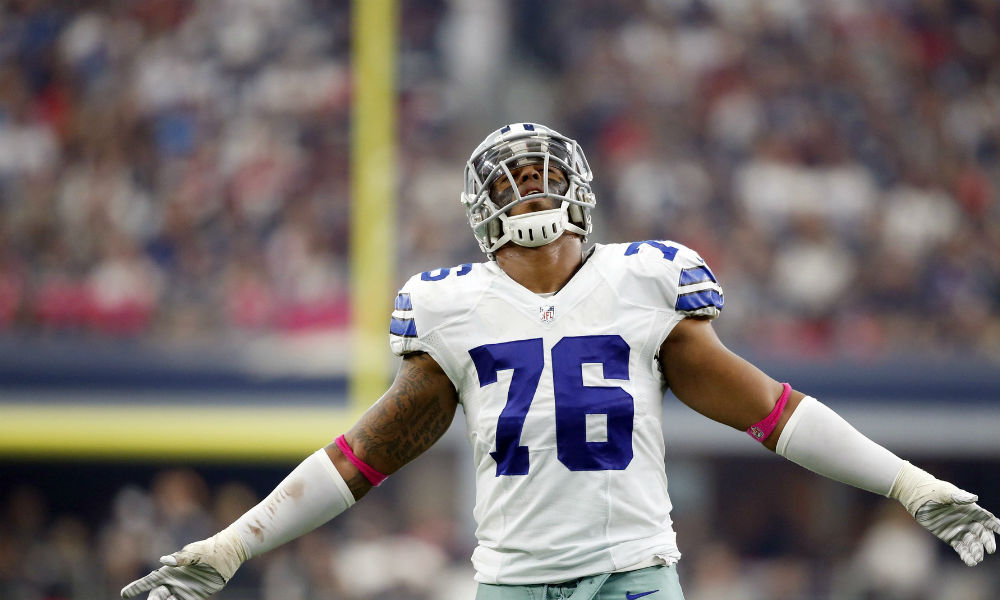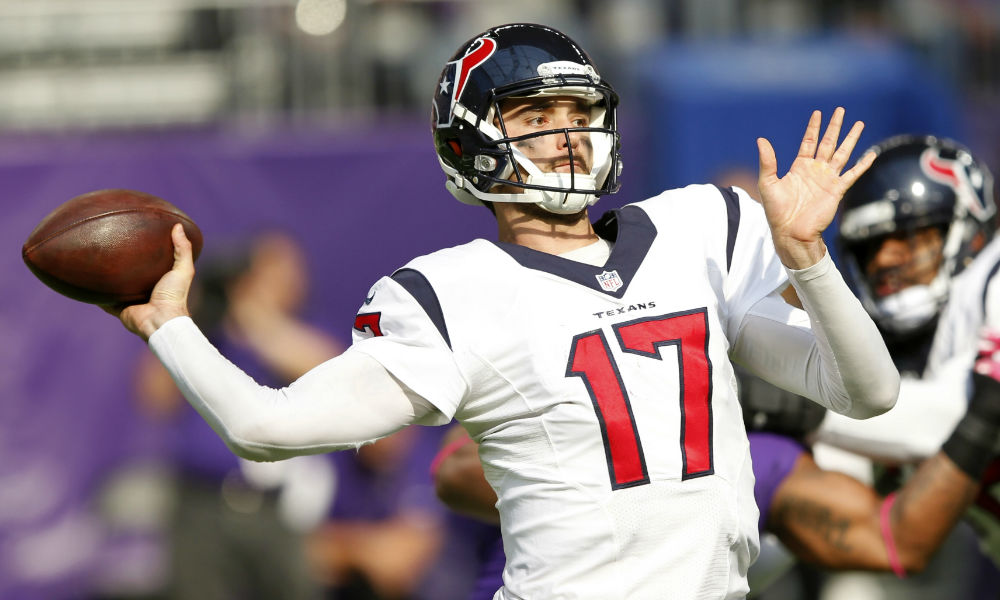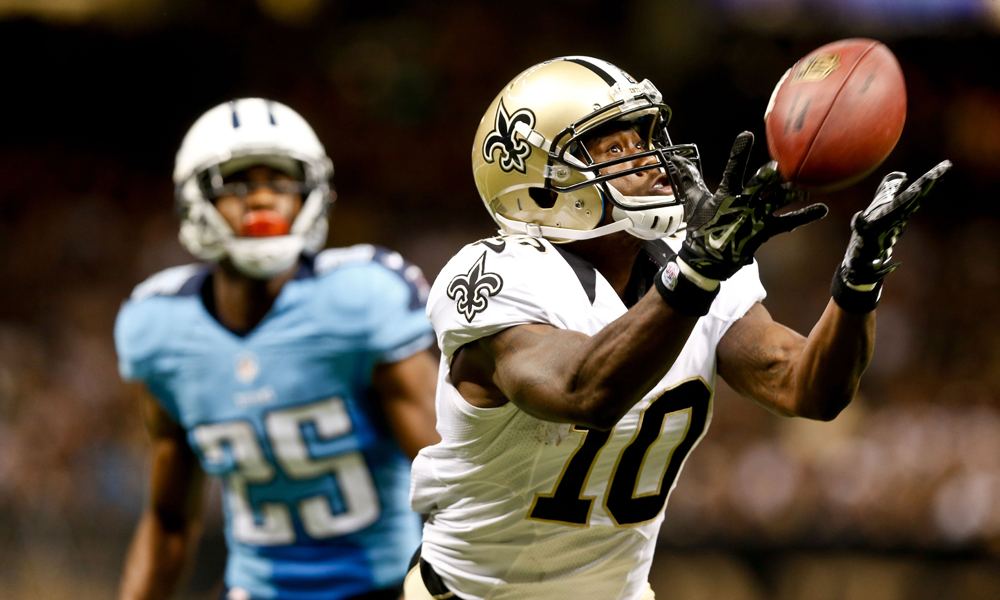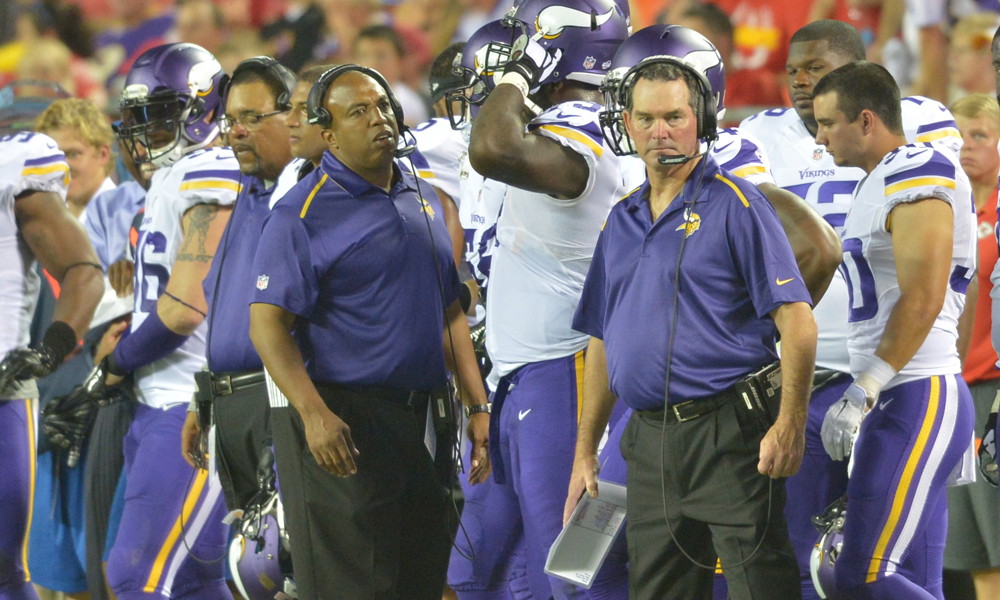News
Kubiak’s Scheme Complicates Manning’s Title Pursuit
Broncos in tough spot implementing West Coast offense with Peyton
More than any other franchise in the NFL entering the 2015 season, the Denver Broncos are stuck in limbo — between what they were and could have been, what they are now, and what they will be in the not too distant future.
All of those fates revolve around one man, quarterback Peyton Manning, and number 18’s return for an 18th and likely final NFL season has done little to change Denver’s destiny.
It was just 15 months ago that Manning was on the verge of stamping his legacy with a second championship. But a Super Bowl XLVIII drubbing from Seattle sent the quarterback and the Broncos franchise into a tailspin. After he literally limped out of last year’s playoffs, following a divisional round loss to his former team the Colts, it was rumored that Manning would retire and simply fade away, but the longer he went without a decision either way, the more clear it became that Peyton was not ready to let go of his unfinished business.
Before Manning announced his return, John Elway did his best to turn the page for the Broncos. The team first parted ways with defensive-minded head coach John Fox. Then, rather than promoting Fox’s offensive coordinator Adam Gase — who had worked closely with Manning since the quarterback’s arrival in Denver in 2012 to build a highly-ranked and highly successful offense — Elway went in a different direction entirely.
Instead, Elway brought in Gary Kubiak, who spent nine years as the backup to Elway in Denver during his playing career, then served as the team’s offensive coordinator from 1995-2005, to bring the West Coast offense back to the Broncos.
However, as much as the Broncos would like to move on with their new staff and scheme, it’s going to be difficult to do so on offense with Manning still in place. Granted, had Manning retired the Broncos would be in a tougher spot at quarterback, led by either Brock Osweiler or whichever member of a notably weak quarterback class they attempted to bring in via free agency or a trade. Manning is far and away the best option for the 2015 Broncos at quarterback.
But it’s going to be a challenging transition for all involved parties, with egos compromised while expectations remain as high as they’ve ever been for Denver to compete for a title. For his part, and to ease the transition, Kubiak has said he’s hoping to mix elements of the offense Manning is most comfortable with and the West Coast offense he’s know for.
“What we’ve done is study what Peyton has done for many, many years and taken some things that I feel good about and kind of crossed two systems together,” Kubiak said at the NFL owners meetings last month. “The bottom line is we’re going to do what he does best — what our players do best. I’ve got a pretty good vision of what I want it to look like and now we’ve got to get to work on it.”
However, Kubiak has already begun making sweeping changes. He’s committed to bringing back the zone blocking scheme that the Broncos had so much success with during his time as OC. That change could actually help Manning, though it will rely heavily on the team’s offensive line personnel adjusting quickly to the change and executing it with success. That’s made difficult by an overall lack of talent along Denver’s line.
The Broncos do have a couple of solid offensive line pieces, and to facilitate the switch, one of them is moving back to his natural and best position. After he spent most of last season at right tackle, veteran Louis Vasquez is going back to right guard, where he was an All-Pro in 2013. There, Vasquez will take the place of another one of the league’s best guards, Orlando Franklin, who departed Denver for San Diego this offseason.
The move by Vasquez also makes the Broncos likely to draft one of the many talented tackles expected to be available when they pick late in the first round of this year’s draft. Selecting a player who is familiar with the zone scheme, and can slide right into the starting lineup to bookend the line with left tackle Ryan Clady, would be crucial to their success as a unit early in the season.
However, even if Denver does find a tackle early in the draft, that still leaves the left guard and center spots open, two crucial pieces of a zone blocking scheme. The Broncos do have plenty of options at the position, with veterans Manny Ramirez, Chris Clark and Paul Cornick still on the roster as well as offseason imports Shelley Smith and Gino Gradkowski, who they acquired from Kubiak’s previous team the Baltimore Ravens. But none of those choice are particularly palatable as starters.
Denver is relying more on the development of some of the younger players on their offensive line depth chart, including 2014 third round pick Michael Schofield, 2014 sixth round picks Matt Paradis and Jon Halapio, and Ben Garland, a former defensive lineman who began the transition to the offensive line last year.
Kubiak acknowledged that the onus is on himself and his coaches, offensive coordinator Rick Dennison and offensive line coach Clancy Barone, to get those players ready to contribute.
“The key is going to be these young guys we have — (Matt) Paradis, (Ben) Garland, can we get these guys playing at a bigger level as they move into years two and three, those types of things,” Kubiak said. “We think a lot of the young guys, we really do. My history with Rick Dennison — and Rick and Clancy have worked together — I feel real good about our ability to develop these young guys.”
How the Broncos fill their three big holes on the offensive line could make or break their success next season, because it’s the only offensive personnel position where they are weak.
The running back position is as deep as it has ever been in Denver, with breakout rookie C.J. Anderson leading the way. Anderson’s emergence will allow the team to use Montee Ball, provided he’s healthy, in the change of pace role he’s built for. They also return Ronnie Hillman, who proved more than capable of handling the load last season. That will be key in Kubiak’s run-reliant West Coast offense.
The Broncos are also in solid shape at wide receiver, where Demaryius Thomas and Emmanuel Sanders were the league’s top receiving tandem last year with over 3,000 yards between them. Thomas and Sanders headline a group that also includes some up-and-comers like 2014 second round pick Cody Latimer, whose rise will ease the exit of Wes Welker.
The one major difference in the offense will be the absence of Pro Bowl tight end Julius Thomas, who signed a lucrative deal with the Jacksonville Jaguars in the offseason. However, the Broncos quickly moved to replace Thomas with veteran tight end Owen Daniels, who has been a cog in Kubiak’s offense for many years. The Houston Texans drafted Daniels prior to Kubiak’s first season with the team in 2006 and he spent the next eight seasons with Kubiak there, then followed him to Baltimore last season.
In addition to putting in a new blocking scheme, Kubiak’s West Coast offense brings with it a brand new playbook, despite few changes in the skill-position personnel of the Broncos highly-ranked offense, though the coach believes Daniels will be a valuable resource in that regard.
“He could go teach our offense,” Kubiak said. “He could walk into a room and teach what we do.”
Learning new plays won’t be difficult for Manning anyway. The veteran quarterback is one of the best football minds there is and has likely already immersed himself in the new playbook provided by Kubiak and his staff. It’s the changing style of play that will take some getting used to. Players that have spoken to the media in recent weeks have made note of the vast differences in Kubiak’s playbook from the scheme that made the Denver offense so successful each of the last two seasons.
“We’ve got a totally different offense,” Sanders said last week. “We’re not going to be spreading the ball out — at least, that’s what I’m getting from it. We’re going to be more of a balanced attack, more of a running style.”
Anderson said he believes the West Coast offense will be a solid fit for the Broncos and made mention of how the balance of the scheme will help both the running game and the passing game. But even he noted the differences in the style and verbiage.
“Totally different. Not as complex, so that’s a good thing. A lot of verbiage, just a lot of different terminology. Kind of the same concepts, different terminology. You just try to compare this word, this concept to what it was last year,” Anderson said. “I get a chance to teach myself the fundamentals, get back to the basics of what makes running backs and offenses successful. That’s what I’m taking in right now, it’s a slow process, but I’m picking it up real quick, and I’m going to continue just working and being ready to go.”
In theory, balancing the attack definitely should help Manning, taking some of the pressure and workload off the veteran quarterback. But when the Broncos added more balance to their offense late last season while Manning was dealing with a lingering leg injury, the quarterback did not have much success. In fact, he looked so bad at times that it had many questioning whether one of the best quarterbacks in NFL history had finally reached his cliff and should strongly consider calling it a career.
We won’t know how much of those late season struggles had to do with the leg injury until he takes the field in September, but it’s something Denver has to wonder about. That’s what makes the drastic change in offense that much more puzzling. The West Coast offense Kubiak has run in the past is predicated on movement and mobility, two elements that have never been strong points of Manning’s game, and that’s especially true with Manning now at the age of 39 coming off that leg injury.
The new Broncos coach and his offensive coordinator Rick Dennison have also talked openly about how they plan to put Manning under center more to utilize stretch running plays and play action passes. Those are two elements Manning and his offense had success with earlier in his career in Indianapolis. But Manning was a younger man then and though he was never an extremely nimble quarterback, he was certainly more athletic and capable of moving around then. Now he’s basically tied to the pocket, which is one reason why shotgun and pistol formations have worked so well for him in recent years. How effective he’ll be in drop back situations, particularly with a weak offensive line, is anyone’s guess.
“Obviously I love to run the ball and I love the play (action) pass,” Kubiak told reporters last month. “I love to do those things, so there is going to be a commitment there. But there is 17 years of investment in what he’s done better than anybody and we’re not going to run away from that.”
Kubiak continued to preach through the first week of the team’s offseason workouts, which are being skipped by franchise-tagged wide receiver Demaryius Thomas, that he’s not trying to change the player that Manning is and has been for most of his career, while noting that the transition for Manning and his offensive personnel is going well.
“Crossing the schemes, so to speak, was very, very easy,” he said. What I tried to do is the things that were very close, I tried to hang on to the verbiage that they had been talking here in the past, because I think that made it easier for the players. The things that were new, we hung on to the verbiage that I used throughout my career … Peyton and the guys have adjusted to that very well. But I don’t see that being very difficult. Ball is ball, and scheme — how you go about it — a lot of it’s the same.”
But for all Kubiak’s talk of keeping things in place for Manning, it’s hard to deny that it’s going to be different. It has to be. If Elway wanted continuity, he would have kept Fox for one more year or promoted Gase. He wanted change and change is what he’s going to get with the West Coast offense.
The Broncos are in a period of transition, but for now at least they’re making the transition with a 39-year-old quarterback whose only goal is one last run at a potential title. So instead of moving forward, they’re stuck in limbo, attempting to balance championship aspirations with the realization that the assembled group simply and the scheme they ran was not good enough to win a Super Bowl. And that’s a tough place to find yourself when your goal is still championship or bust.
News
Buccaneers admit mistake, boot Aguayo
Source: Mike Florio of ProFootballTalk
Powered by WPeMatico
News
Did Bucs put too much pressure on Aguayo?
Source: Mike Florio of ProFootballTalk
Powered by WPeMatico
News
Broncos holding their breath on Derek Wolfe
Source: Mike Florio of ProFootballTalk
Powered by WPeMatico
